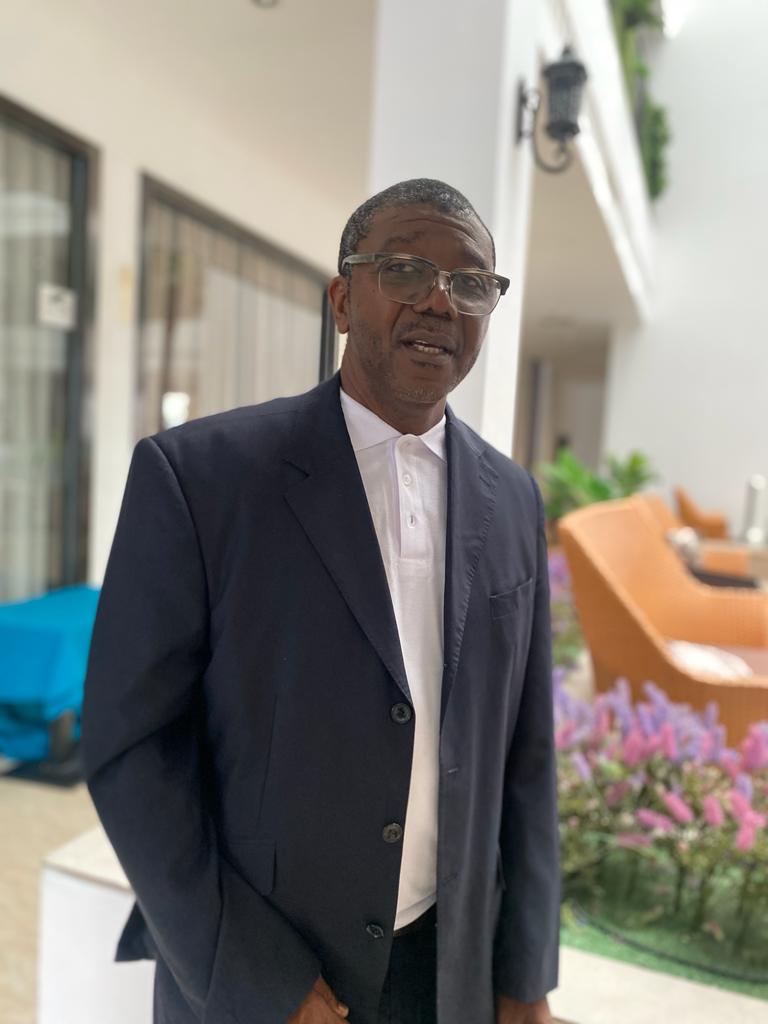By Janet A. Sesay
The Centre for Electoral and Civic Education (CECE) which motto is “promoting democracy and good governance in Sierra Leone” together with the African Economic Research Consortium (AERC) and International Development Research Centre (IDRC) has on Wednesday 3 May 2023 at the Atlantic Hotel in Lumley, Freetown, presented a specialised research paper on financial inclusion with the question, “Does Mobile Money Adoption and Credit Access Improve Innovation and Performance of Enterprise in Sierra Leone?”.
This research was conducted by three authors who are Dr Jacob Novignon of Kwame Nkrumah University of Science and Technology, Kumasi, Dr James Fomba Sandy of Social Science and Law Department Njala University Sierra Leone and Dr Tom Kimani from AERC Kenya.
While presenting the researched paper, the Executive Director for the Centre for Electoral and Civic Education (CECE), Macksood Gibril Sesay, said the CECE is a local civil society organisation set up in 2020 that stands to promote democracy and good governance in Sierra Leone.
He said the organisation provides expertise and training on civic education, election, political cycle and governance, adding that they also build collaborative relationships with youth groups, women, first-time voters, security sector, elections management bodies among others.
Director Sesay furthered that one of their partners, African Economic Research Consortium- AERC’s study venture to unravel the impact of mobile money adoption and credit constraints on innovation and performance of micro, small and medium scale businesses in Sierra Leone, adding that this study seeks to investigate the linkages between mobile money use, credit constraints, innovation and performance improved innovation.
He said according to the Ministry of Finance the financial sector in Sierra Leone is small and underdeveloped, adding that in 2017 the financial sector of Sierra Leone consisted of fourteen (14) commercial banks, seventeen (17) community banks, five (5) microfinance institutions authorised to collect deposit and two (2) mobile operators.
He continued that the World Bank enterprises survey data collected in 2017 for Sierra Leone suggested that 150 firms were surveyed and only forty-eight (48) firms in which 38% of them used mobile money for their transaction and the majority of these firms only used the mobile money services to receive payment from customers.
He said the study notes that some countries in the sub-region continue to lag behind and this is particularly the case of fragile and post-conflict regions where mobile financial services are substantially underdeveloped like in Sierra Leone, financial markets are underdeveloped with low rates of financial inclusion, adding that only 11% of the population aged more than 15 years own a mobile money account in Sierra Leone.
He said only 14% of male population and 9% of female population own mobile money account and a report from Bank of Sierra Leone shows that about 30% of adults were actively using a digital payment account by the end of 2019.
Director Sesay also said the government should provide a supportive environment for entrepreneurship and innovation to drive access to credit for investment and innovation.
He said credit facilities and banks should provide a variety of services on mobile money options to improve productivity adding that there should be a need to harness the benefits of mobile financial services and ensure efforts are gender sensitive.
He further that the AFRC study suggested that there is improvement on the use of mobile financial services in recent years, adding that it is also important to note that the penetration of financial inclusion through digital financial services like mobile money remain low and fraught with operational challenges.
He said recent report by the Bank of Sierra Leone on digital financial services revealed that mobile network operators were only able to activate 12% of their registered customer base in 2016 and this figure fell 6% in 2017 and rose to 8% in 2018.
He said in summary of the research, the author’s note states that the uses of mobile money significantly increased the likelihood of business innovation by 34% but however credit constraints had a significantly negative effect on business innovation reducing innovation by 32%.
Dr Jacob Novigon in his presentation on financial inclusion for sustainable innovation performance of enterprise in Sierra Leone said policies should improve effort to increase mobile money penetration rate in Sierra Leone, adding that the adoption and use of mobile money also improve firm’s ability to innovate, adding that credit constraint hinders firm’s ability to innovate and improve performance.
He said the use of mobile money saves time and cost related to financial transaction that requires physical travel, adding that the time and financial cost saved can be invested in developing innovative ideas which will improve business operations to increase performance, adding that efforts from government in improving mobile money adoption among enterprises will lead to a significant improvement of their performance.


